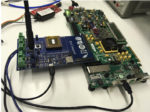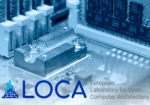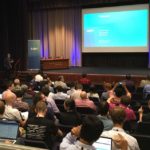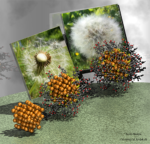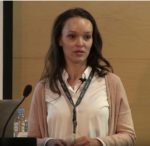The Barcelona Supercomputing Center has coordinated the manufacture of the first open source chip developed in Spain. “Lagarto is an important step in the search of the BSC, led by the center’s director, Mateo Valero, to develop European computing technology. This project is based on the premise that the instruction set of the future processors must be open source to ensure transparency and minimize dependence.”
BSC takes one of top spots in the IO500 10-Node Challenge
The Storage Systems for Extreme Computing team from BSC has taken the number 4 spot in the IO500’s ‘10- Node Challenge’ with GekkoFS. “The IO500’s “10-Node Challenge” list is a global ranking that uses multiple concurrent processes running in 10 compute nodes to benchmark the I/O performance of a HPC storage system in terms or bandwidth and throughput. GekkoFS’ score of 125 ranks it fourth in IO500’s 10-Node Challenge List and ninth in IO500’s Full List, with an average 21.41 GiB/s of bandwidth and an average of 728,680 operations per second.”
ENERXICO to Empower Mexican Energy Sector with HPC
Recently launched in Barcelona, ENERXICO is a new project jointly funded by European Union and the government of Mexico to solve such real-world engineering problems. “Mexico through the ENERXICO project and the European collaboration aims to develop exascale-ready application codes, some of which Pemex plans to use as part of their production environment. This is a major effort that could boost HPC applications in Mexico in the energy sector.”
CSC Finland powers AI to help predict hybrid nanoparticle structures
Researchers in Finland have achieved a significant step forward in predicting atomic structures of hybrid nanoparticles. The work was carried out using supercomputing resources at CSC and the Barcelona supercomputing center, as a part of a PRACE project. “This is a significant step forward within the context of new interdisciplinary collaboration in our university. Applying artificial intelligence to challenging topics in nanoscience, such as structural predictions for new nanomaterials, will surely lead to new breakthroughs.”
Experiences developing and running numerical simulations on HPC platforms: BSIT and GeNESiS
Claudia Rosas from BSC gave this talk at the HPCKP’19. “In this talk, we present the general benefits of using the frameworks in current HPC platforms and describe both of them when applied to develop and deploy wave propagation simulations which are highly valuable for the Oil & Gas industry. The knowledge obtained from work with BSIT has motivated the concepts and methodology behind GeNESiS to consolidate years of experience in one robust, flexible and modern tool for numerical simulations.”
CRAG Adopts Pure Storage for Agricultural Genomics
The Centre for Research in Agricultural Genomics (CRAG) in Spain has announced plans to deploy Pure Storage solutions to improve its high performance computing environment. CRAG is dedicated to cutting-edge scientific research in plant and farm animal biology. The new solution ensures the speed, scalability and stability required by CRAG’s scientists to carry out vital research projects.

